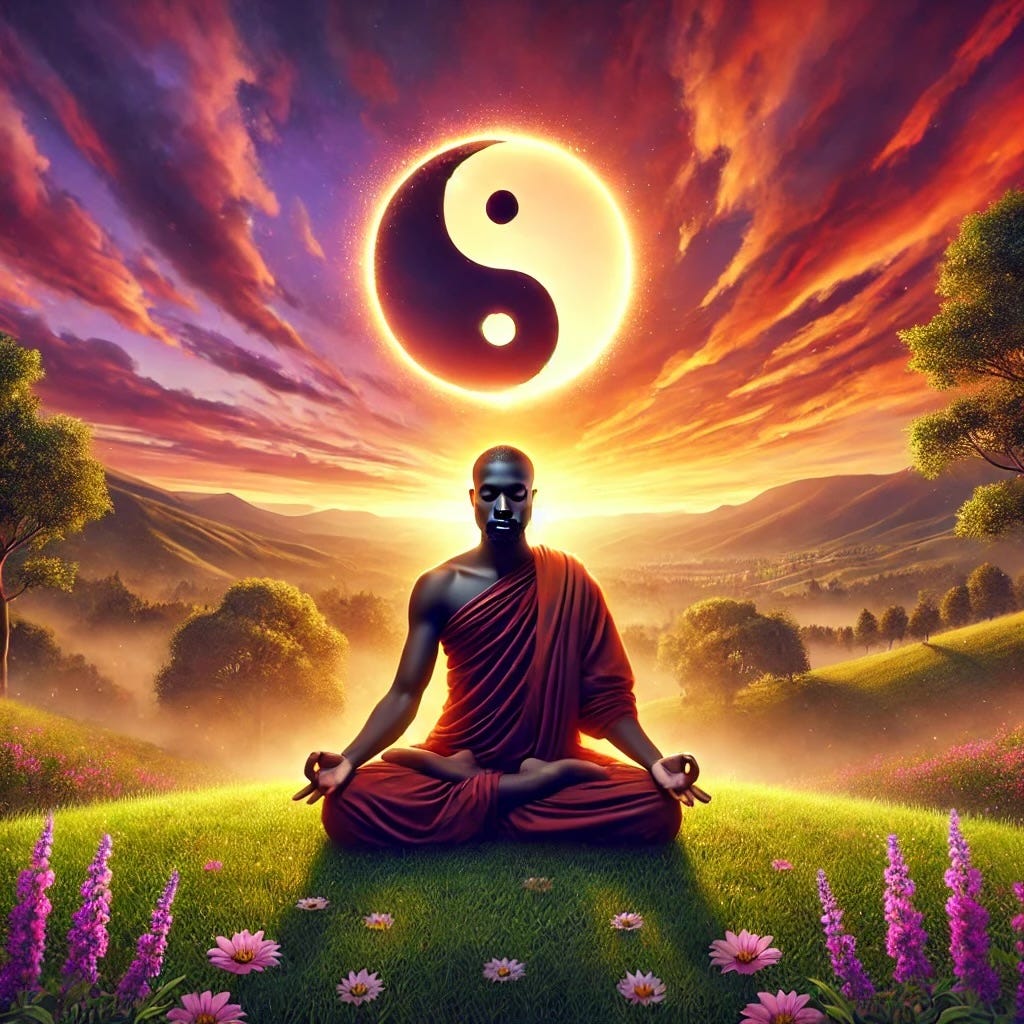As I sit here reflecting on the world’s endless need to interfere, prod, and manipulate, I can’t help but think of Friedrich Hayek, the Austrian economist who understood something primal: life works best when we get out of its way.
This idea, known as spontaneous order, is the very rhythm of life itself. Hayek didn’t stumble upon anything new—he simply saw, in economic markets, what Lao Tzu wrote about over two millennia ago, namely, leave life alone and the world finds its balance.
Hayek’s notion of spontaneous order teaches us that systems, from the flow of capital to the complexities of society, thrive when left to their own devices.
Hands-off.
Laissez-faire.
Let it ride.
He argued that the micro-elements of society—the individual actions of countless people—create the most efficient outcomes when they’re not micromanaged.
Sound familiar? Well, it’s the Taoist way, my friends.
Just like Hayek’s markets, the Taoist concept of wu wei (actionless action) teaches us that interference is not just unnecessary, it’s counterproductive. Life, like the economy, is a dance of ebb and flow—when we stop trying to control it, we allow its natural wisdom to reveal itself.
Tao, which means The Way, symbolizes the natural rhythm and flow of life when unhindered. It is beautifully captured in this verse of the Tao Te Ching, the preeminent Taoist writings of Lao Tzu:
“Governing a country is like frying a small fish. You spoil it with too much poking. Center your country in the Tao and evil will have no power. Not that it isn’t there, but you’ll be able to step out of its way. Give evil nothing to oppose and it will disappear by itself.”
(Lao Tzu, Tao Te Ching, chapter 60, translation by Stephen Mitchell).
So here, Lao Tzu compares governing a large country to frying a fish. Yet when one takes a deeper look at what he’s attempting to convey, it's easy to conclude that, like Hayek, he too is an adherent of non-interference.
As a developing cook, I can totally relate to where Lao Tzu is going with this, given my tendency to poke, prod, mess with and even taste my culinary creation while it’s on the stove or in the oven.
My heart is in the right place, because I do mean for it to turn out well. But I’ve come to discover that forcing the issue - however well-intentioned - often leads to a less than stellar outcome for the meal I’m creating.
The same is true for leaders, in their attempts to manage a large business enterprise or even a country. Despite their best intentions, they simply can’t resist the temptation to meddle and intervene at an excessive level.
Here’s the kicker: politicians today are obsessed with control, obsessed with the idea that we can legislate and plan our way into a perfect society. But let’s be honest—they’re frying the fish with too much poking, as Lao Tzu might say.
So in my view, Hayek was right. Lao Tzu was right. In other words, the world thrives not because we control it, but because we let it breathe.
Practical Advice for Surviving and Thriving in a Spontaneous World:
Trust the Process – Whether it’s your business, your relationships, or your personal growth, stop micromanaging. Sometimes it’s best to let things unfold naturally.
Embrace Uncertainty – The world’s unpredictability isn’t something to be feared. It’s the natural order. So learn to ride the waves rather than fight them.
Interfere Less, Observe More – Before jumping in to fix a problem, take a step back. Sometimes, the best action is no action at all.
Be Like Water – Adapt, flow, and take the path of least resistance. In both economics and life, rigidity breaks; flexibility endures.
Trust in Spontaneous Order – Whether in markets or in life, remember that the most complex and beautiful systems emerge from simple rules followed by individuals acting freely.
Let the world move. Let yourself move with it.
Unleash the Syrup: Become a Member of The Chocolate Taoist™ Tribe
Since 2022, The Chocolate Taoist has delivered uncommon nomadic wisdom to help you live a more interconnected and expansive life.
If this publication has been a source of wisdom for you then please consider helping me sustain it by becoming a monthly or annual contributor.
For just $6.00/month or $60.00/year, you’ll have the opportunity to share your lived experiences with fellow nomads, fueling fiery discussions that provoke, inspire, and challenge you to think differently.
So I hope you will take the plunge today and contribute to my mission of helping human travelers on this life journey.
Onward and Forward
Diamond Michael Scott aka The Chocolate Taoist






Thank you!
The balance between designed and spontaneous order, which is part of Leif Smith's concept of "Freeorder" and inspired by Hayek's work, means to me that structure and control, including limits, are necessary. The eternal questions are what, when, how much, and who gets to decide.
I want to free up individual innovation so we all have lots of choices. At the same time, humans have struggled for thousands of years regarding what laws should be in place when we make mistakes and disagree. Your goat runs into my yard, and dies. Who is responsible for the cost of replacing the goat? Did the community discover a problem that might impact others? Have many goats died under the same circumstances? Maybe something needs to be done? How do we course correct quickly when our great idea become riddled with unintended consequences?
On the spectrum of how much control, I tend to the side of spontaneous order. However, I also believe that judiciously applied designed order can actually make spontaneous order better and vice versa. The fun part (she says sarcastically) is negotiating with other people - and the institutions they serve - on what that balance should be when we are all entrenched in our positions. And, how do we execute and enforce those agreements when necessary?
No answers, just hopefully better questions.